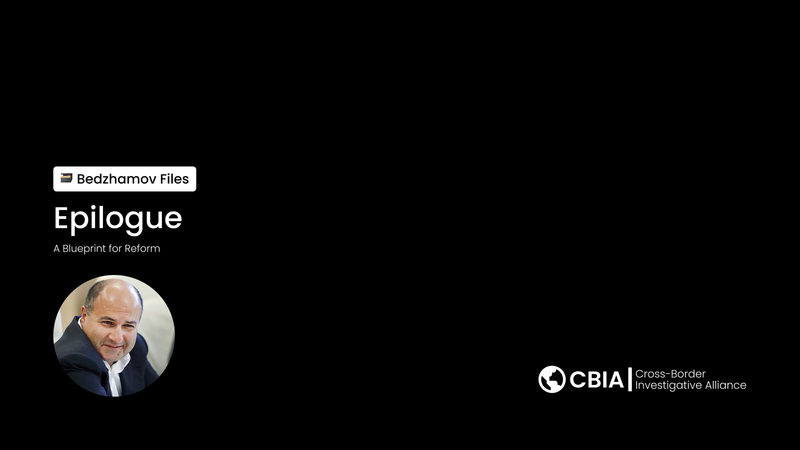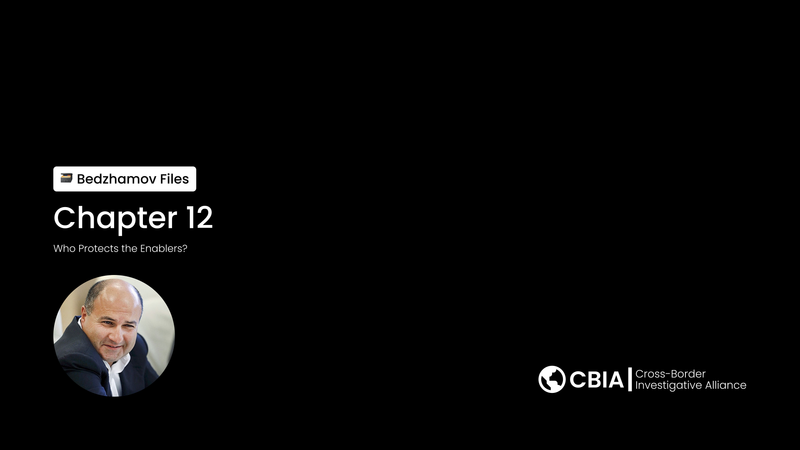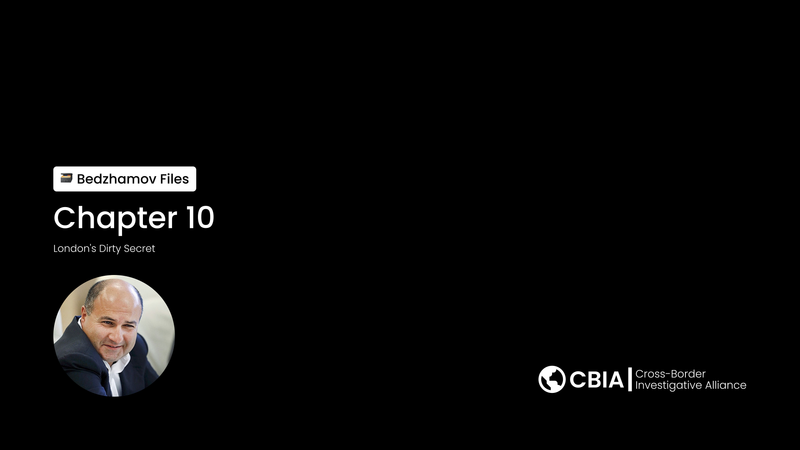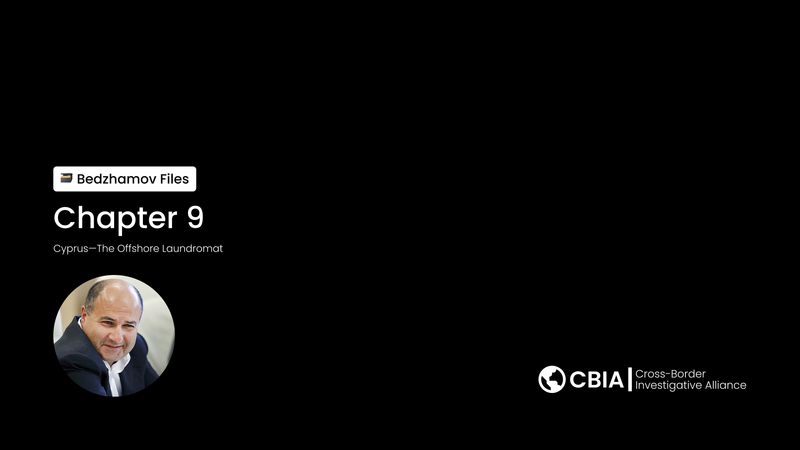Chapter 11: Why Hasn't Bedzhamov Been Extradited?
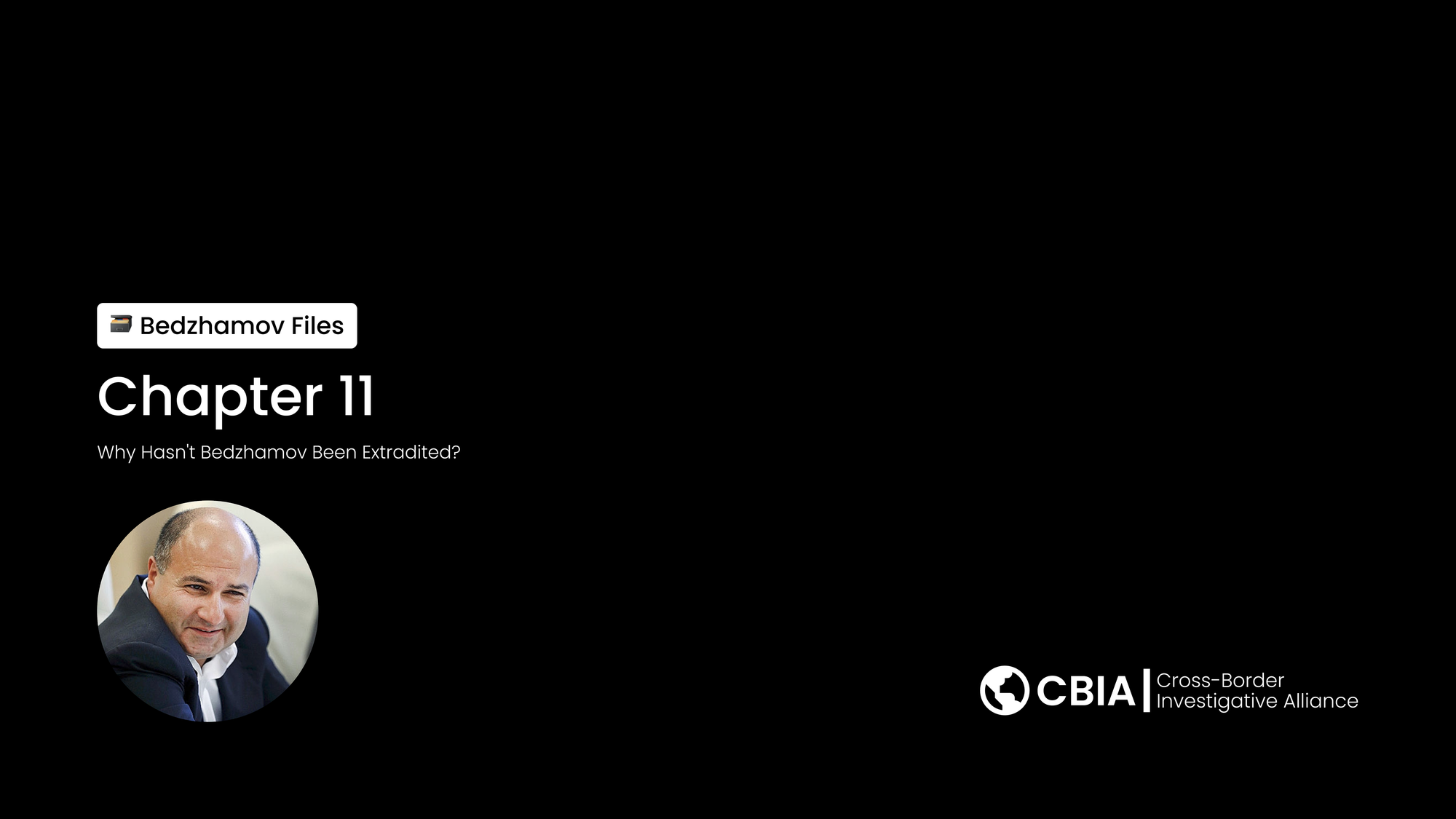
Seven years after Russian authorities first sought his return to face justice, Georgy Bedzhamov remains in London, engaged in complex legal battles but free from the prison cell that holds his sister. His continued presence in the United Kingdom despite an active extradition request raises fundamental questions about international cooperation in combating financial crime and the special protections enjoyed by wealthy defendants.
Russia's extradition request, filed in 2017, presented substantial evidence linking Bedzhamov to the Vneshprombank fraud. According to court documents, prosecutors alleged his direct involvement in creating and directing the scheme that embezzled billions from depositors. Yet this request has languished in the British legal system, subject to numerous delays, procedural challenges, and appeals.
"The extradition case against Bedzhamov appears to have fallen into a procedural black hole," noted one international legal expert. "While the request hasn't been formally rejected, it has effectively been neutralized through procedural mechanisms that can extend the process indefinitely."
This outcome reflects broader patterns in how British courts handle Russian extradition requests. Since 2002, when the UK-Russia extradition treaty came into effect, the UK has rejected or effectively stalled the vast majority of requests from Moscow. While British authorities cite legitimate concerns about Russian judicial procedures and detention conditions, the practical effect is to create a safe haven for certain categories of Russian defendants—particularly wealthy individuals who can afford sophisticated legal representation.
Bedzhamov's legal team has mounted a multi-faceted defense against extradition. Central to their strategy is the argument that he would face human rights violations if returned to Russia—a claim that finds a receptive audience in British courts, which have historically been skeptical of Russian human rights assurances.
In court filings, his attorneys have argued that Bedzhamov would face torture or inhuman treatment in Russian detention facilities, that he would not receive a fair trial, and that the case against him is politically motivated rather than based on genuine criminal concerns.
These arguments mirror those successfully employed by other wealthy Russians fighting extradition from the UK. The British judiciary's concerns about Russian detention conditions are well-documented, with multiple court rulings citing independent reports of mistreatment, inadequate medical care, and overcrowding in Russian prisons.
However, critics note that these legitimate concerns about the Russian justice system have created a two-tiered approach to accountability: those with sufficient resources to reach the UK and hire top legal representation can effectively place themselves beyond Moscow's reach, while less wealthy defendants face the full force of Russian prosecution.
"There's a profound irony in Bedzhamov claiming he can't return to Russia because of prison conditions," observed one anti-corruption campaigner. "His sister is experiencing those exact conditions while he lives comfortably in London. The system effectively rewards the sibling who fled with immunity while punishing the one who remained."
The contrast is particularly stark when considered in light of the siblings' alleged roles in the fraud. Court documents from Markus's trial suggest that while she managed day-to-day operations, Bedzhamov was equally involved in planning and directing the scheme. Yet it is Markus who serves a nine-year sentence while her brother remains free.
Bedzhamov's case also benefits from the complex geopolitical relationship between the UK and Russia. Throughout the period of his extradition proceedings, bilateral relations have deteriorated significantly, with issues ranging from the Salisbury poisonings to election interference allegations creating an increasingly hostile diplomatic environment.
This political context creates additional headwinds for Russian extradition requests, as British courts become increasingly skeptical of Moscow's motivations and assurances. While judges consider each case individually, they do not operate in a political vacuum, and broader diplomatic tensions inevitably influence the legal landscape.
Legal experts also point to the role of resources in extradition outcomes. Bedzhamov's ability to hire elite legal representation—including Queen's Counsel barristers specializing in extradition law—provides access to legal strategies unavailable to less wealthy defendants. These include exhaustive procedural challenges, expert witnesses testifying about Russian prison conditions, and appeals that can extend proceedings for years.
"The extradition system fundamentally favors wealthy defendants," explained one barrister with extensive experience in cross-border cases. "The legal tools to fight extradition exist for everyone in theory, but in practice, only those with substantial resources can fully utilize them."
The May 2024 High Court judgment provides insight into how Bedzhamov's broader legal situation continues to evolve, with the court addressing complex questions about sanctions regulations and the ownership structure of A1, the litigation funder pursuing asset recovery [1]. While not directly addressing extradition, the judgment demonstrates how Bedzhamov's case has spawned multiple overlapping legal proceedings that collectively delay final resolution.
The judgment notes the "very considerable" scale of claims against Bedzhamov, with the Vneshprombank claim alone "pleaded at US$1.34bn" [1]. This extraordinary sum highlights the disconnect between the severity of the alleged offense and the absence of criminal accountability.
For Russian authorities, the inability to secure Bedzhamov's extradition represents a significant failure in their efforts to address high-profile financial crime. While they successfully prosecuted Markus and several lower-level participants, the escape of one of the primary alleged orchestrators undermines the case's deterrent effect and feeds public cynicism about selective justice.
This outcome also creates tensions in international law enforcement cooperation. Russian prosecutors have expressed frustration that despite providing substantial evidence of Bedzhamov's alleged crimes, their extradition request has effectively been sidelined. This frustration extends to other cases where wealthy Russians have successfully fought extradition from the UK, creating a pattern that Moscow views as politically motivated.
However, human rights organizations note that British courts' concerns about Russian justice are well-founded. Reports from the European Committee for the Prevention of Torture, the UN Human Rights Committee, and independent monitoring organizations consistently document serious issues in Russian detention facilities, including mistreatment, inadequate medical care, and procedural violations during trials.
"The fundamental problem is that legitimate human rights concerns about the Russian justice system create a loophole that can be exploited by wealthy defendants," said one human rights attorney. "While no one should be extradited to face torture or an unfair trial, the current system creates immunity primarily for those with the resources to reach the UK and fight prolonged legal battles."
Bedzhamov's case also highlights how different legal systems approach the question of proportionality in financial crimes. Under Russian law, the scale of the Vneshprombank fraud—involving billions in misappropriated deposits—would typically result in a lengthy prison sentence similar to or exceeding Markus's nine-year term. British courts, however, appear more influenced by procedural and human rights concerns than by the magnitude of the alleged offense.
This divergence creates a situation where the severity of punishment for financial crime becomes determined not by the nature of the offense but by the defendant's ability to relocate to a jurisdiction with different approaches to extradition and criminal justice.
The case raises important questions about whether current international cooperation mechanisms are adequate for addressing sophisticated financial crimes. The existing framework—based primarily on bilateral extradition treaties and mutual legal assistance agreements—contains significant gaps that can be exploited by wealthy defendants with access to international mobility and legal resources.
Recent developments suggest limited progress in addressing these gaps. While the UK has implemented sanctions against numerous Russian individuals following the Ukraine invasion, these measures focus primarily on those with political connections to the Putin regime rather than alleged financial criminals like Bedzhamov. Similarly, anti-money laundering reforms, while strengthening some aspects of financial oversight, have not significantly improved extradition outcomes.
For victims of the Vneshprombank fraud, the failure to secure Bedzhamov's extradition represents a profound injustice. While their deposits disappeared into offshore structures and luxury real estate, one of the primary alleged perpetrators continues to fight legal battles from a position of relative comfort and freedom.
"He walks free in London while we lost everything," said one depositor who requested anonymity. "What kind of justice system allows this? If you steal a loaf of bread, you go to prison. If you steal billions, you get to live in Belgrave Square and hire the best lawyers money can buy."
This sentiment reflects wider concerns about how the international legal system handles high-value financial crime. The effective immunity enjoyed by wealthy defendants who can relocate to jurisdictions with limited extradition cooperation creates perverse incentives, potentially encouraging larger-scale fraud by demonstrating that sufficient resources can secure protection from criminal consequences.
Legal scholars have proposed various reforms to address these issues, including standardizing human rights safeguards in extradition proceedings, creating specialized international tribunals for complex financial crimes, and strengthening mutual recognition of asset freezes and confiscation orders. However, implementing such changes would require significant political will and international cooperation—both currently in short supply.
In the meantime, Bedzhamov's continued presence in London stands as a powerful symbol of how geography, resources, and sophisticated legal strategies can shield individuals from accountability for alleged financial crimes of extraordinary magnitude. While his sister serves her sentence in a Russian penal colony, he remains free to fight asset recovery efforts through procedural challenges and technical legal arguments.
This disparity doesn't just represent an individual injustice—it highlights fundamental weaknesses in how the international system addresses financial crime in an era of global capital flows and cross-border mobility. Until these weaknesses are addressed through meaningful reforms, cases like Bedzhamov's will continue to undermine confidence in the promise of equal justice under law.
Sources:
[1] Vneshprombank v Bedzhamov, Kireeva v Bedzhamov [2024] EWHC 1048 (Ch)
[2] "Extradition Between Russia and the UK: Patterns and Challenges", International Criminal Justice Review
[3] "Human Rights Protections in Extradition Proceedings", European Court of Human Rights Analysis
[4] "Effectiveness of International Cooperation Against Financial Crime", OECD Financial Action Task Force Report
[5] "Resource Disparities in Cross-Border Legal Proceedings", Access to Justice Study


